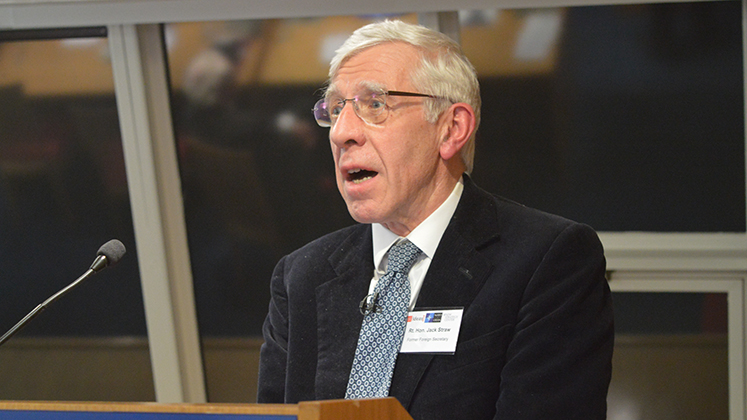With 30 members and still intact after 70 years, NATO's task of defending Europe will test the alliance in new ways over the next decade. On the day after the NATO heads of state and government meeting in London in December 2019, held to mark the 70th anniversary of the alliance, LSE IDEAS, the New Strategy Center (Bucharest) and NATO Public Diplomacy held a day-long conference to consider NATO's Next Ten Years.
Bringing together senior officials, military personnel, former practitioners and other experts, the discussion ranged over NATO's narrative in the years ahead, challenges to the defence of Europe on the Black Sea, Russia's strategy, and deterrence in Europe as nuclear arms limitation treaties fall away, and new weapons and new forms of inter-state competition come into play.
The days' discussion converged towards two perspectives:
- NATO's strategy and missions need to be focused to remain effective - NATO cannot try to do too much.
- While sufficient financial and military resources are vital for keeping NATO effective, the task of maintaining the alliance remains political.
How Can NATO Define Itself to Take on New Challenges?
"One threat, one flank, one presence": Romania's Defence Minister Nicolae Ciuca presents the perspective from the Black Sea, the region of Europe, he says, where Europe's border is most vulnerable, where Russia has been most willing to use force, and where the alliance is most likely to be put to the test. Europe is a "soft power continent" that has to learn to step up more in its own defence.
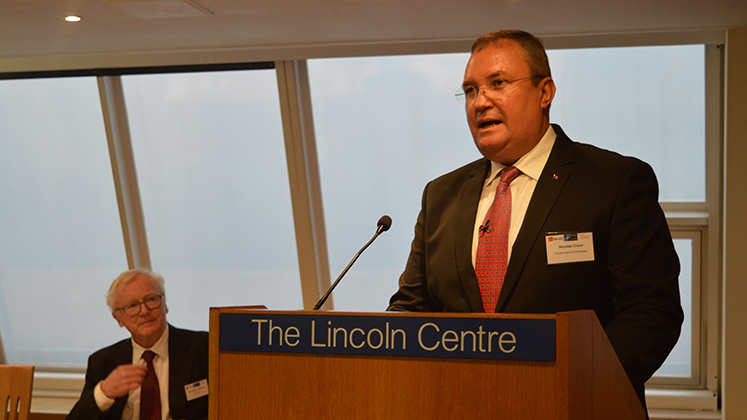
NATO's Narrative for the Next Ten Years
Tacan Ildem, NATO's Assistant Secretary for Public Diplomacy, Tomas Ries, Professor in Security and Strategy at Sweden's Defence College, and James Sherr of the Estonian Foreign Policy Institute, look with LSE's Professor Christopher Coker at the themes that will bind NATO together in the years ahead. We face more complex challenges - from China, from the South, from Russia - and differences of opinion are more open. The culture of deterrence is gone - NATO enlargement was premised on military force no longer being relevant. The Russian objective in Europe is political, to push back against what Russia sees as the incursion of Western politics into Russia’s historical space. To persuade Russia that there’s no such thing as a short war against NATO, forward forces need to have real capability, not just a symbolic presence. But our political weaknesses are more serious and more important than our military weakness.
Listen to the podcast: NATO's Narrative for the Next Ten Years
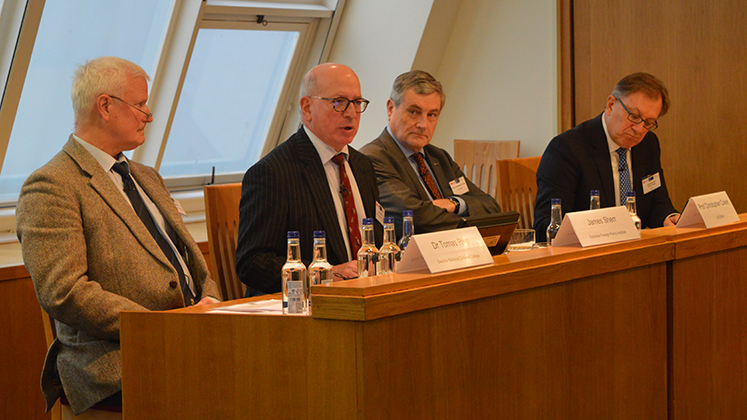
NATO's Challenges in the Black Sea
Sergiu Celac (Chairman, New Strategy Center, Bucharest), talks over NATO's challenges in the Black Sea with Andrew Noble (British Ambassador to Romania), Major General Iulian Berdila (Commander South East, Romania), Phillip Petersen (Center for the Study of New Generation Warfare) and Mykhailo Samus (Center for Army Studies, Ukraine). The attention that Europe has given to the Black Sea has been belated and timid, although the UK has taken a lead in supporting NATO engagement in Romania. NATO needs to have the capacity to switch forces rapidly to Romania, and whatever cannot be rapidly transferred to there, has to be stationed in Romania. In a context where Russia now regards the Black Sea as a domestic lake, more attention is needed to regional naval forces, including in Romania and Ukraine.
Listen to the podcast: NATO's Challenges in the Black Sea
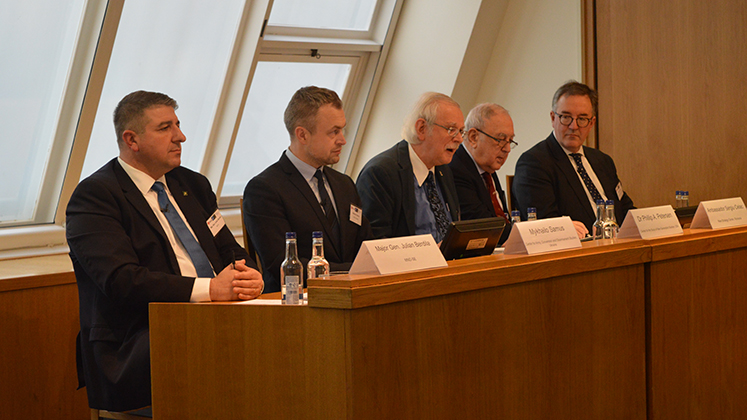
How Does Russia Think About Its Security and Strategic Objectives?
Vlad Zubok (Professor of International History, LSE), and Rodric Braithwaite, former UK ambassador to Moscow, talk with LSE IDEAS' Professor Gordon Barrass about getting into the mind of the other side.
Putin is an autocrat on a tightrope: he failed to build a political party, and runs a rickety coalition of oligarchs, priests and security officials. Western observation of Russia and Putin's regime is clouded by a lack of understanding of how great the blow of the collapse of the Soviet Union and the Russian empire was to Russian identity. Russia’s actions from 2008 were arguably not motivated by any kind of offensive strategy, rather, Putin reacted out of despair. His quota of foreign interventions is probably exhausted: there are no more Crimeas to hand. The Russian threat to Europe is real, but it’s primarily regional, and Putin is being cautious: he stopped in eastern Ukraine. His aim is to hold on to power and restore respect for Russia. Russia now has a better prospect of destabilising NATO by saying and doing nothing, while alliance leaders slug it out.
Listen to the podcast: How Does Russia Think About Its Security and Strategic Objectives?
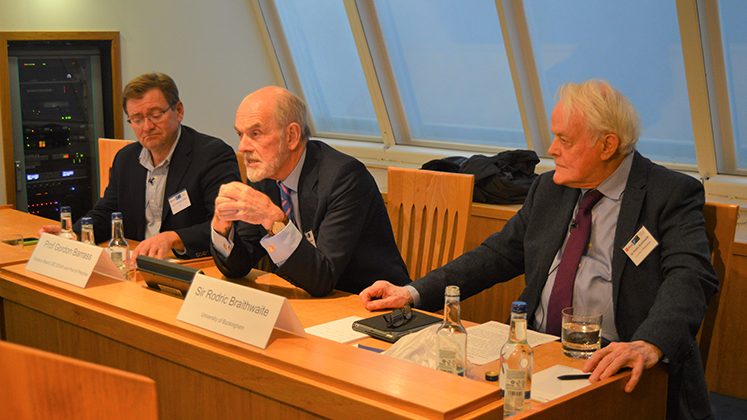
Bringing Deterrence in Europe up to Date
General Sir Richard Barrons (Visiting Senior Fellow at LSE IDEAS) leads a conversation with Sorin Ducaru (Director, European Union Satellite Centre) and Greg Melcher (Center for the Study of New Generation Warfare) on the impact of new technology on deterrence of Russia in Europe. The discussion ranges from the requirement to deter cross-domain contestation of public opinion and digital security, to the role of tactical nuclear weapons in managing escalation.
Listen to the podcast: Bringing Deterrence in Europe up to Date
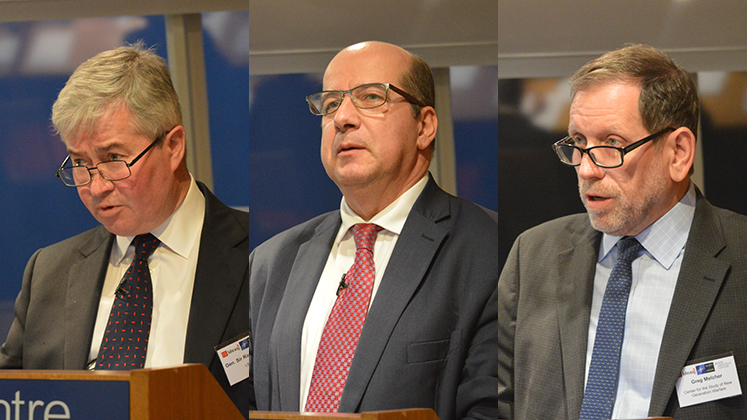
Rt. Hon. Jack Straw's Concluding Remarks
Britain's former Foreign Secretary looks back over the history of the Atlantic alliance, and outlines the political challenge of adapting the alliance to the increasingly complex threats to European security.
Listen to the podcast: Rt. Hon. Jack Straw's Concluding Remarks
